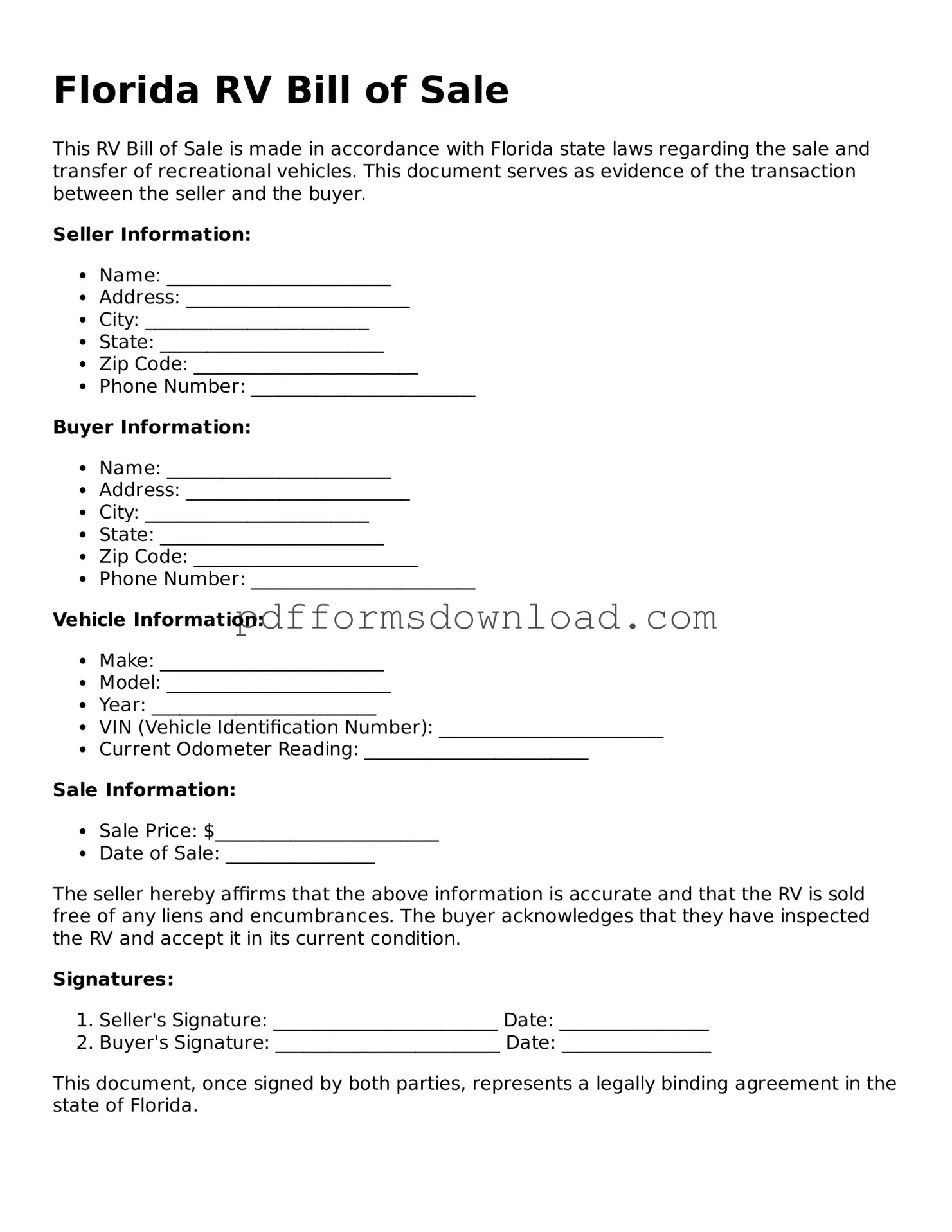What is a Florida RV Bill of Sale?
A Florida RV Bill of Sale is a legal document that records the sale of a recreational vehicle (RV) in Florida. It serves as proof of the transaction between the buyer and seller, detailing the terms of the sale, including the vehicle's identification, sale price, and the date of the transaction.
Why do I need a Bill of Sale for my RV?
The Bill of Sale is essential for several reasons. It provides legal protection for both the buyer and the seller. For the buyer, it proves ownership and can be used for registration purposes. For the seller, it acts as a record that the vehicle has been sold, protecting them from future liabilities associated with the RV.
What information is included in a Florida RV Bill of Sale?
A typical Florida RV Bill of Sale includes the names and addresses of both the buyer and seller, a description of the RV (including make, model, year, and VIN), the sale price, the date of the sale, and any conditions of the sale. Both parties should sign the document to validate it.
Do I need to have the Bill of Sale notarized?
No, a Florida RV Bill of Sale does not need to be notarized to be valid. However, having it notarized can add an extra layer of authenticity and may be required by some financial institutions or for certain transactions.
Can I create my own Bill of Sale?
Yes, you can create your own Bill of Sale as long as it contains all the necessary information. There are also templates available online that can guide you in drafting a comprehensive document. Just ensure that it meets the legal requirements for Florida.
Is a Bill of Sale required to register my RV in Florida?
Yes, you will need a Bill of Sale to register your RV in Florida. It serves as proof of ownership, which is necessary when you go to the Department of Highway Safety and Motor Vehicles to complete the registration process.
What if the RV has a lien on it?
If there is a lien on the RV, it must be paid off before the sale can be finalized. The Bill of Sale should indicate that the lien has been cleared, or the buyer should be made aware of the existing lien and agree to the terms before proceeding with the sale.
How can I ensure the Bill of Sale is valid?
To ensure the Bill of Sale is valid, both the buyer and seller should sign it. It's also a good idea to keep a copy for your records. Make sure all information is accurate and complete, and consider having it notarized for added security.
What should I do after completing the Bill of Sale?
After completing the Bill of Sale, both parties should retain a copy for their records. The buyer should then take the Bill of Sale to the local Department of Highway Safety and Motor Vehicles to register the RV and obtain a new title in their name.

